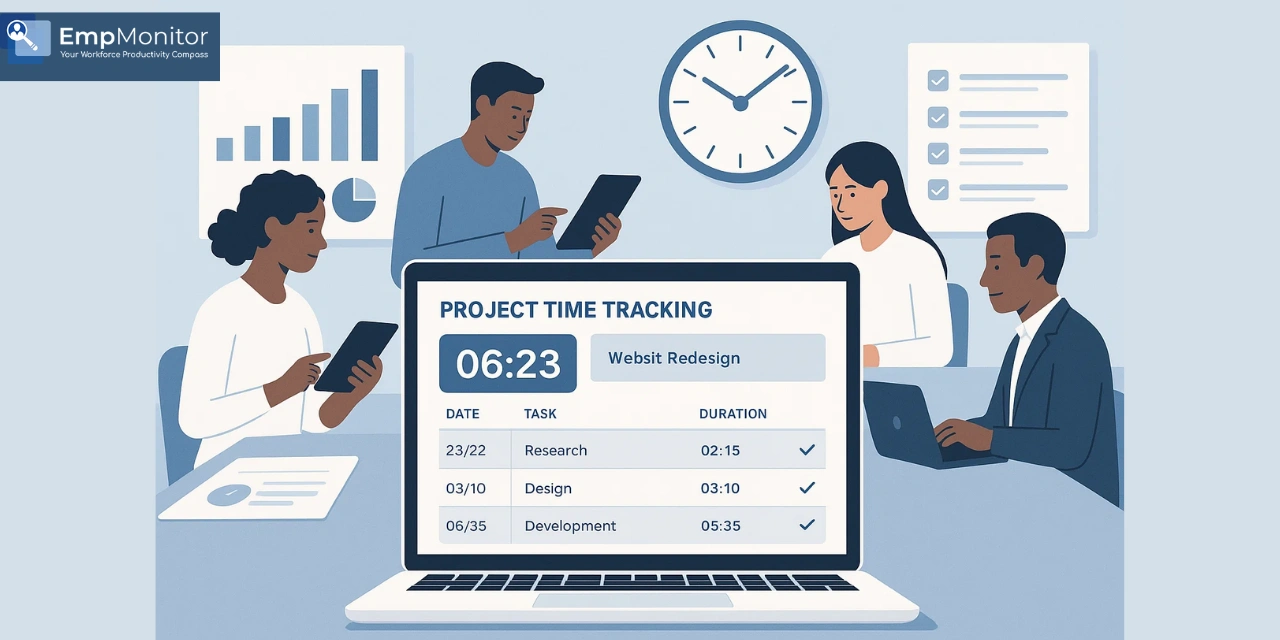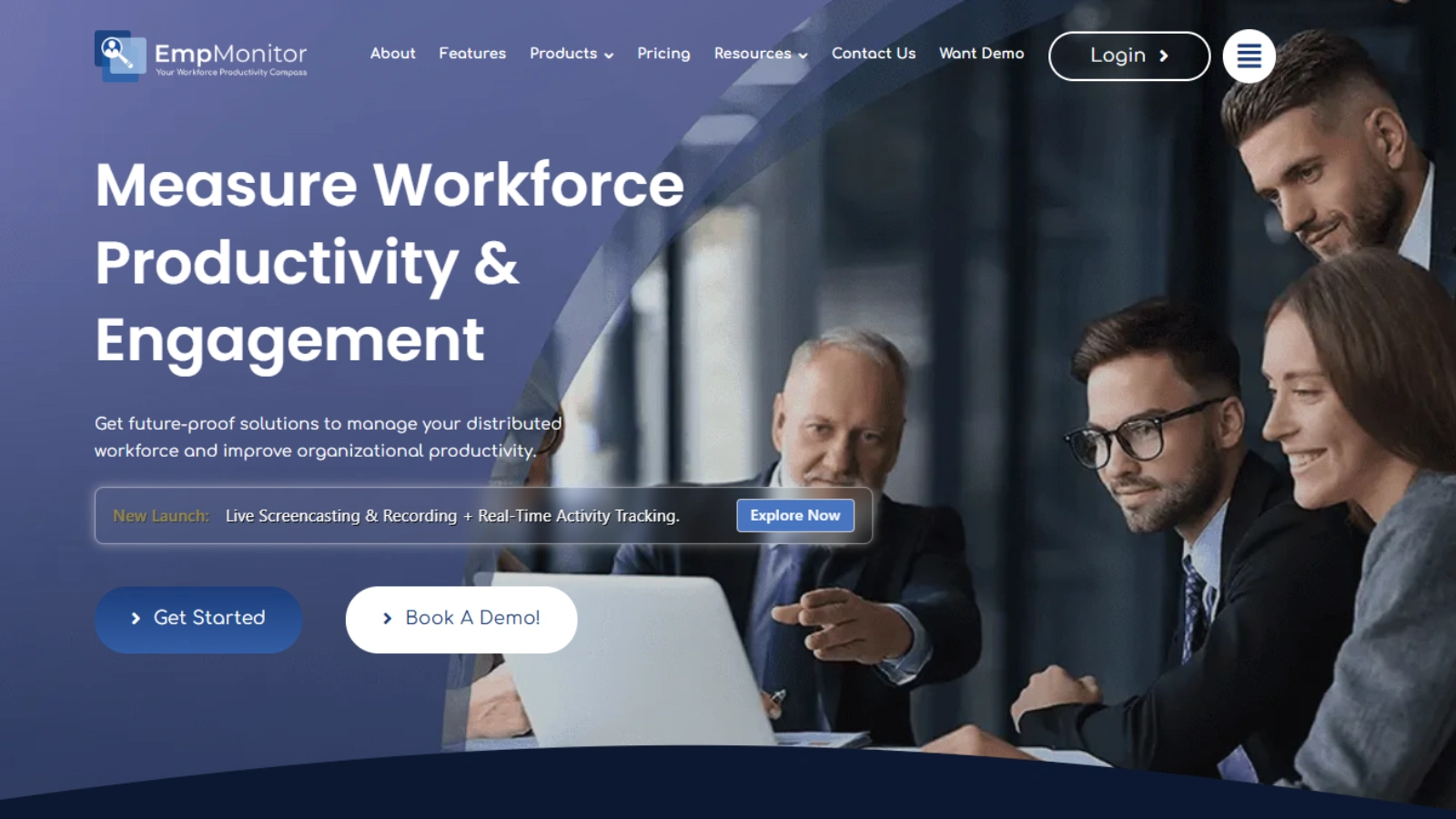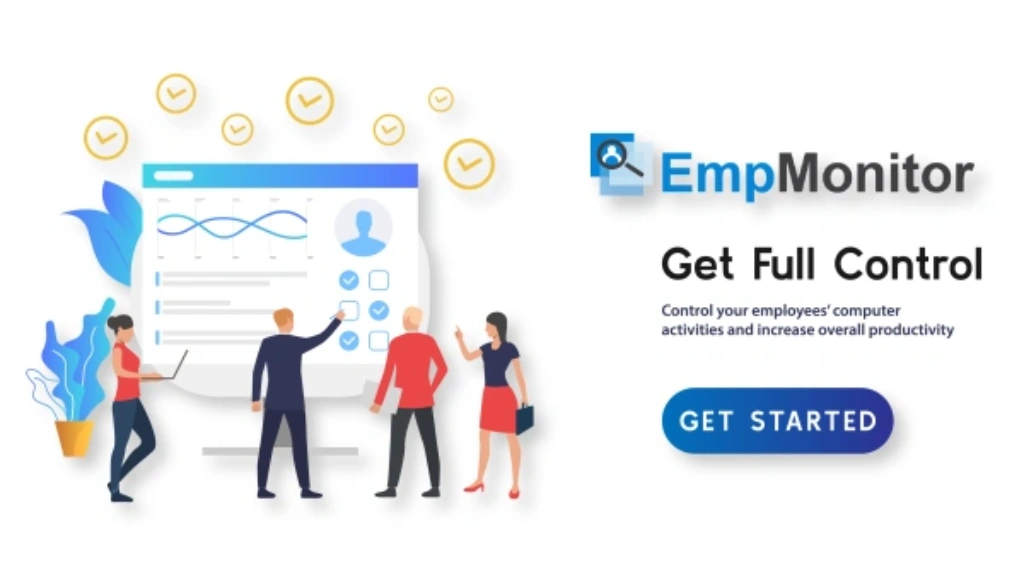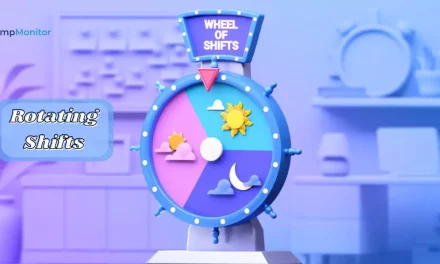Smooth workflow depends on more than just assigning tasks; it needs accurate measurement of time spent on every activity. Project time tracking gives managers and teams the clarity to allocate resources, identify bottlenecks, and maintain consistent productivity levels. Without accurate time data, even the most well-planned projects face delays, budget overruns, and unnecessary stress.
Whether a business handles multiple small tasks or long-term projects, time tracking helps teams focus on priorities. It also supports better accountability, as each member knows exactly where their hours go and how their performance contributes to the project’s success.
In a hurry? Listen to the blog instead!
What Is Project Time Management And How Does It Work?
Project time management is the process of planning, scheduling, and controlling the amount of time spent on different stages of a project. It includes establishing timelines, distributing resources, and ensuring that each task is aligned with the deadlines.
By combining project time management with modern project time tracking tools, organizations can see real-time updates on task progress. This helps prevent wasted hours and ensures that deadlines are achievable. Time logs, reports, and analytics give managers a clear picture of productivity trends, making it easier to improve performance across the team.
Read More!
How A Time Tracking App For Freelancers Fuels Growth?
8 Tips To Get The Most Out Of Project Management Time Tracking Software
Key Challenges Teams Face Without Effective Project Time Management
Without proper project time management, teams often face several hurdles that can slow progress and reduce output.
- Missed deadlines that delay project delivery and damage client trust.
Late submissions can push back other dependent tasks, creating a chain reaction of delays. Over time, this weakens client relationships and can reduce future project opportunities. - Budget overruns caused by unmonitored hours and overtime.
Without accurate tracking, unnecessary labor costs pile up quickly. This directly impacts profit margins and makes it harder to forecast financial requirements. - Unbalanced workloads, where some team members struggle with too many tasks while others remain underutilized.
Overloaded employees face burnout, while underutilized staff waste valuable potential. Balanced task distribution improves efficiency and keeps morale high. - Lack of visibility makes it hard to spot inefficiencies early.
Managers can miss signs of slow progress until it’s too late. Clear visibility helps address issues before they escalate into bigger problems.
These challenges disrupt workflow, reduce productivity, and limit overall project success. Implementing consistent project time tracking prevents such problems by ensuring every step stays measurable and transparent.
Project management trackers are essential for staying on schedule and maintaining smooth workflows. They:
- Show real-time progress on tasks.
This allows teams to address delays as they happen rather than after the fact. Instant updates help keep projects aligned with their planned timelines. - Allow managers to reassign or adjust workloads instantly.
Quick workload changes prevent bottlenecks and keep team members from getting overwhelmed. It also ensures that no task gets neglected during high-demand periods. - Improve team communication by keeping everyone updated on changes.
Centralized updates reduce confusion and eliminate the need for constant follow-up emails. This keeps everyone aligned on deadlines and priorities. - Provide historical data for better project planning.
Past performance metrics help managers predict resource needs more accurately. This makes future project estimates more reliable and efficient.
Integrating project management trackers with project time tracking ensures accurate reports, better transparency, and smarter decision-making for every project stage.
Choosing The Right Software For Tracking Projects
Selecting the right software for tracking projects depends on your team’s size, industry, and goals. A good tool should:
- Offer detailed time tracking capabilities.
This ensures every task is accurately recorded, leaving no room for guesswork. Precise tracking also helps identify productivity trends over time. - Provide easy task assignments and progress tracking.
A simple interface saves time during project setup and reduces the learning curve for new users. Clear progress updates keep the whole team aligned on priorities. - Integrate with existing communication and file-sharing tools.
Seamless integration eliminates the hassle of switching between multiple platforms. This keeps the workflow uninterrupted and information accessible in one place. - Generate customizable reports for analysis.
Tailored reports allow managers to focus on specific KPIs and make data-driven decisions. This flexibility supports better long-term planning and performance reviews.
The ideal software for tracking projects combines accurate time monitoring with streamlined project organization, giving managers full control over both productivity and progress in a single dashboard.
Read More!
Simplify Project Management with Time Tracking Software
How Project Management Software Streamlines Workflow?
Project management software serves as a central hub for all tasks related to a project. It:
- Allows seamless task allocation.
Managers can assign responsibilities instantly and ensure tasks match each team member’s strengths. This leads to faster execution and better quality results. - Keeps files, deadlines, and communication in one place.
Centralizing documents reduces the risk of misplacing them and facilitates team collaboration without confusion. - Shows a clear timeline of activities to avoid missed steps.
Visual schedules help teams understand the order of tasks and dependencies. This ensures critical steps aren’t skipped, keeping the project on track. - Offers performance reports to analyze team output.
Detailed reports give insights into individual and team efficiency. Managers can use this data to refine processes and boost overall productivity.
When combined with project time tracking, project management software helps managers plan with precision, optimize resource allocation, and maintain a steady workflow from start to finish.
Role Of Time Tracking Software In Project Success
Time tracking software plays a crucial role in keeping projects on track and ensuring desired outcomes. It offers several key benefits:
- Measures actual work hours against planned schedules
By comparing logged work hours with the original project plan, managers can see if tasks are ahead or behind schedule. This comparison helps identify areas that need more resources or better time allocation. It also ensures that deadlines remain realistic as the project progresses. Ultimately, it keeps the team aligned with the project’s timeline. - Identifies time-wasting activities
Detailed time logs reveal where team members spend most of their working hours. This insight makes it easier to spot unproductive habits, bottlenecks, or unnecessary tasks that slow progress. Once identified, managers can streamline workflows and remove inefficiencies. The result is a more focused and productive work environment. - Supports accurate client billing and cost estimation
For service-based businesses, accurate time tracking ensures that clients are billed for the exact hours worked. It also helps create precise estimates for future projects based on historical time data. This not only improves profitability but also builds trust with clients by maintaining transparency in billing. - Ensures accountability among team members
When each team member logs their hours, it creates a clear record of individual contributions. This fosters a sense of responsibility, as everyone knows their performance is tracked. Accountability encourages consistent effort and ensures tasks are completed on time. Over time, this leads to stronger teamwork and higher overall output.
When every hour is recorded through project time tracking, managers gain a full and accurate view of how resources are used. This data-driven approach allows for smarter planning, faster adjustments, and improved project success rates.
How EmpMonitor Helps In Monitoring And Project Time Tracking?
EmpMonitor offers a powerful suite of tools designed for both project time tracking and workforce management. It goes beyond basic tracking by providing deep insights into productivity and security.
Key Features:
Project Management Module
EmpMonitor’s Project Management Module goes far beyond simple task tracking; it empowers managers and teams to collaborate effectively while maintaining accuracy and control. By combining advanced features with real-time insights, it ensures projects are executed with precision and delivered on time.
Customized Access Levels:
Assign tailored permissions to team members, giving them the exact level of access they need to perform efficiently while maintaining security and transparency.
Role Assignment & Member Groups:
Define roles and responsibilities clearly for each member and organize them into groups. This fosters seamless teamwork, streamlines communication, and eliminates role confusion.
Task & Subtask Handling:
Break down large tasks into manageable subtasks for better control. This ensures no detail is overlooked and helps managers track every stage of progress effortlessly.
Timeline Monitoring:
Stay on top of the project lifecycle with complete visibility into task creation, updates, and completions. This makes it easier to spot bottlenecks early and keep deadlines intact.
Kanban Boards & Gantt Charts:
Visual project planning tools like Kanban boards and Gantt charts give managers a bird’s-eye view of progress. Whether it’s productivity tracking, remote workforce coordination, or milestone monitoring, these tools make project execution smooth and transparent.
Reports & Insights:
Generate downloadable reports (CSV/PDF) to analyze performance, track project status, and share updates with stakeholders. These insights help in data-driven decision-making and continuous improvement.
With 100K+ projects managed, 10M+ tasks completed, and 500K+ happy users, EmpMonitor’s project management capabilities stand out as a collaborative solution for growing teams. It links team efforts directly to business success while fostering productivity, engagement, and accountability.
Best Practices For Improving Workflow With Project Time Tracking
To get the most out of project time tracking:
- Set clear milestones before starting any project
Defining milestones helps break large projects into smaller, manageable goals, creating a clear roadmap that makes progress easier to measure while keeping team members focused and aligned with the overall project objectives. - Log time daily to avoid forgetting task durations
Recording hours daily ensures accurate tracking of actual work done, prevents guesswork or inaccurate reporting, and allows early identification of tasks or processes that consume unnecessary time. - Analyze reports weekly to identify and fix bottlenecks
Weekly reviews help identify patterns that impact productivity, enabling managers to address workflow delays or resource shortages promptly, ensuring projects stay on track and minimizing last-minute chaos. - Encourage transparency so team members openly discuss workload challenges
Open communication fosters trust within the team, enabling faster problem-solving when someone feels overloaded, while transparent discussions help prevent burnout and encourage stronger collaboration. - Integrate tracking tools with project management software for real-time updates
Integration ensures all project data remains in one place, improving coordination by syncing timelines, tasks, and progress, while real-time updates enable timely decisions for smoother workflows.
Common Mistakes To Avoid In Project Time Management
Even with the best project time tracking tools, certain mistakes can limit their impact. Here’s what to watch out for:
- Recording Time Inconsistently
When hours are logged irregularly, data accuracy suffers. Small gaps quickly add up, making it harder to assess real progress. Consistent logging ensures reports reflect the true workload and performance. - Ignoring Productivity Data
Tracking hours alone isn’t enough; the real value comes from analyzing patterns. Skipping this step means missing out on insights that could improve efficiency. Productivity trends can reveal where adjustments are needed. - Overcomplicating the Tracking Process
A complex or time-consuming tracking method discourages team members from using it. When the process is simple and intuitive, it becomes part of the natural workflow. Streamlining tracking increases adoption and accuracy. - Failing to Act on Insights from Reports
Time tracking reports guide better project planning and execution. Ignoring the findings leads to repeated inefficiencies. Applying these insights helps prevent delays and resource waste.
By avoiding these pitfalls, teams can keep their time tracking accurate and fully leverage its benefits for better project outcomes.
Future Trends In Project Time Tracking And Management
The future of project time tracking lies in:
AI-powered analytics to predict project delays and suggest optimizations
Artificial intelligence will increasingly be used to analyze work patterns and forecast potential bottlenecks. This predictive capability will allow managers to take preventive measures before delays occur. It will also provide data-backed recommendations to improve project efficiency.
Automation to reduce manual logging
Automation tools will handle repetitive tracking tasks, minimizing the time spent on entering data. This will help employees focus on their core work instead of administrative duties. It also ensures more consistent and error-free time records.
Integration with productivity tools for seamless workflows
Future systems will integrate deeply with project management, communication, and file-sharing platforms. This will create a unified ecosystem where all progress data is updated automatically. Such integration will improve collaboration and decision-making.
Mobile-based tracking for teams working from multiple locations
Mobile-first time tracking will become essential as remote and hybrid teams grow. Employees will be able to log time and update tasks directly from their smartphones. This flexibility ensures real-time accuracy, no matter where team members are located.
These trends will make project time tracking faster, more accurate, and easier for managers to implement.
Conclusion
Project time tracking helps teams stay focused, meet deadlines, and work efficiently. It provides the data needed for informed decisions, better planning, and improved productivity. By combining it with project management trackers, time tracking software, and reliable tools like EmpMonitor, businesses can ensure smooth workflows and consistent results.
FAQs
Q1: What is the main purpose of project time tracking?
The primary goal of project time tracking is to record how much time is spent on each task, helping teams work more efficiently. It ensures deadlines are met and project schedules stay on track. This visibility also supports better planning for future projects.
Q2: How does project time tracking help in cost control?
By revealing where time is being lost or underutilized, project time tracking allows managers to reassign resources more effectively. This minimizes waste and prevents unnecessary budget overruns. In the long run, it supports smarter financial decision-making.
Q3: Can small businesses benefit from project time tracking?
Absolutely. For small businesses, accurate time tracking boosts productivity and ensures timely project delivery. It also helps owners understand workload distribution and improve operational efficiency without adding unnecessary costs.
Q4: Why should I use EmpMonitor for time tracking?
EmpMonitor offers an all-in-one solution, combining time tracking, productivity monitoring, security features, and project management tools. This integration saves time, provides deeper insights, and simplifies workflow management for teams of any size.
Q5: Is manual time tracking effective?
Manual time tracking is prone to errors and inconsistencies, which can lead to misleading data. Automated time tracking software, on the other hand, delivers accurate and real-time records, ensuring reliable performance insights.















